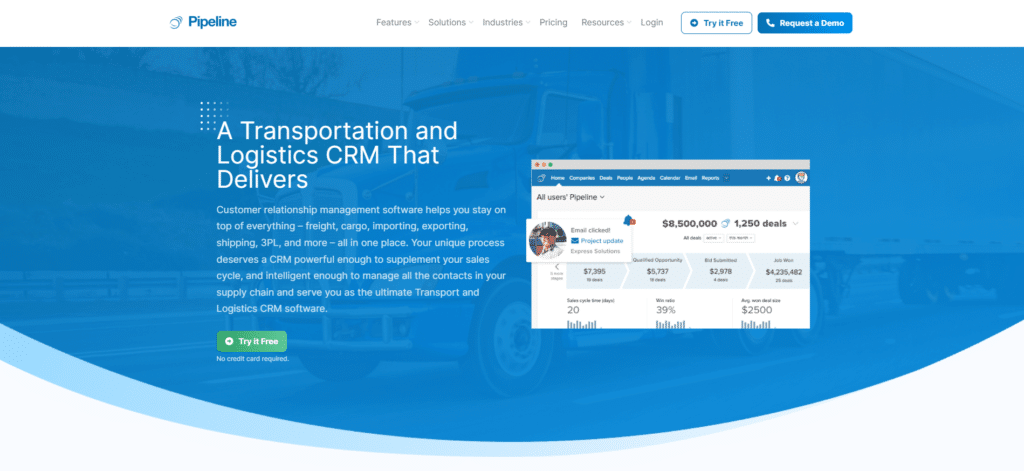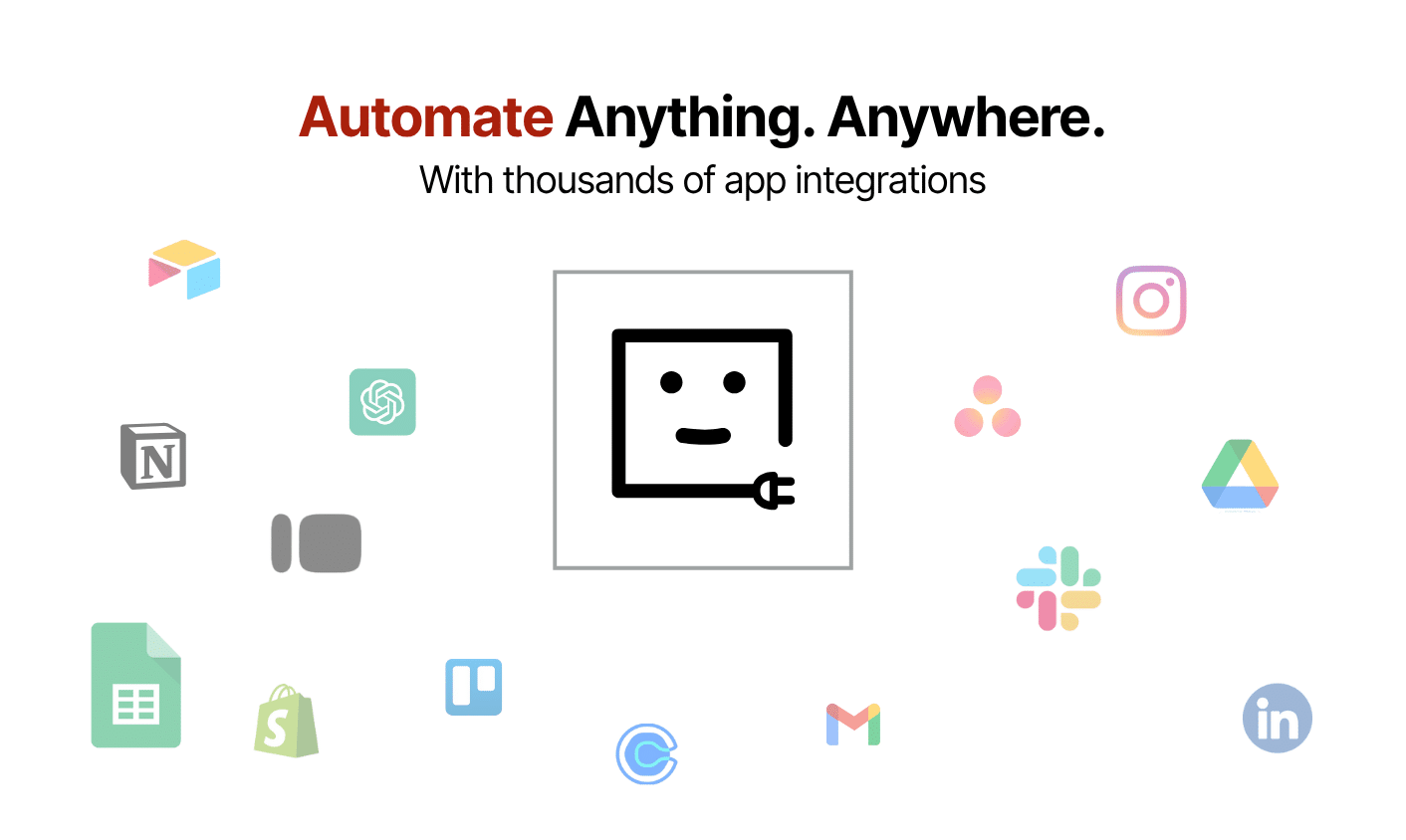Establishing a continuous flow of quality leads is a common challenge faced by small- and large-scale logistics companies. In fact, most sales teams rely on long-term accounts and word-of-mouth to maintain revenue, which is not a sustainable approach.
Other notable reasons why logistics companies struggle with lead generation include:
- Inefficient internal sales processes
- Lack of strategic agility
- Poorly curated value proposition
- Lack of technological adoption
Methods to Help Boost Lead Generation for Logistics Companies:
1. Create a Formal Sales Process
The first step in elevating your lead generation process is to build a definite sales process. This way, your entire team will be focused in a unified direction and have a well-defined framework to follow. Break down your sales pipeline into basic parts:
- Lead generation channels: decide on the channels you will be using to generate leads. This could be a mix of email, content, social media marketing, cold calling, industry trade events, etc.
- Lead evaluation: not every lead is worth pursuing. You need a proper scoring system in place before your sales team takes them up. The best way here is to opt for reliable logistics CRM software with lead management features.
- Evaluation of client needs: constantly assess customer data to stay on top of changing customer needs. Train your reps to understand a lead’s challenge and offer solutions accordingly.
- Proposal: make a formal presentation describing the services you offer, showcase your USPs, and take questions. It should build a strong base for deal negotiation.
- Deal closing: this is where you prepare contracts with the agreed-upon terms, close the deal, and offer your client a smooth onboarding.
2. Identify and Target Key Accounts
To ensure quality lead generation, you need to identify companies who will genuinely be interested in your services. This way, your sales team won’t waste time running after cold leads with a low chance of conversion. To do this, you must first create an ideal buyer persona/s. Assess customer data and market trends to lay down the attributes of your ideal customer. Then, compare your leads to the outlined traits in your personas.
Make a list of companies that fit the image closely, identify their decision makers, and acquire their contact information. It’ll serve as the foundation of your outreach efforts.
3. Focus on Inbound Marketing
Inbound marketing is a self-sustaining resource for generating a steady flow of quality leads into your sales funnel. As it brings prospects already interested in your product, the chances of conversions are much higher than outbound leads.
Your website is your best source to pull inbound leads into your pipeline. It has to be user-friendly and SEO-optimized to maintain consistent traffic. Ensure your website content has relevant keywords and target your audience’s specific challenges.
Add clear CTAs on relevant landing pages to encourage visitors to inquire about your services. You must also ensure your website has a responsive design.
Showcase client testimonials and promote them on your social media pages. Improve your content marketing with valuable and informative blogs, white papers, and e-books. It builds your authority in the logistics industry and boosts inbound lead generation.
4. Automate Your Outreach
You can’t spend hours creating emails for individual leads manually and expect a decent response rate. It’s time-consuming and leaves a lot of room for error.
Worst part? Among all the chaos, your recipient may not even receive the communication on time. To scale your lead generation, you need efficient and agile campaigning methods — which you can enable with automation. Reports show that with sales and marketing automation:
- Lead conversion rate increases by 107%
- Average deal size increases by 40%
- Companies reach 17% better sales forecasting accuracy
With reliable logistics CRM software, you can automate your sales workflows and engage your audience across multiple channels with personalized outreach programs.
You can create engaging emails in seconds with the AI email assistant and automate your email marketing, freeing up your team’s time to focus on strategies and improvements.
Related: How To Write Sales Emails With AI In Sales CRM Software
5. Use AI-Powered Lead Generation Platforms
Businesses are becoming increasingly tech-reliant in the logistics industry. If you are not one of them, you may just fail to source and manage leads properly. Opt for logistics pipeline software with features to find and target the right prospects in seconds. These platforms will collect intent data and let you create an ideal customer persona, identify sales triggers, build prospect lists, and prioritize leads.
Make sure your chosen platform integrates with your logistics CRM software.
It should also be scalable and easy to use.
6. Participate in Trade Shows and Industry Events
Build strategic partnerships with other businesses in the logistics ecosystem to expand your reach. Research shows 68% effectiveness in B2B demand generation. So, the best way to network with industry peers is to attend trade shows and corporate events.
Here, you can meet potential clients, increase brand awareness, and even drive leads. Even if you can’t convert leads during the event, you can acquire qualified contacts for the top of the sales funnel and nurture them with follow-up communication.
7. Cold Call High-Quality Leads
Use your key accounts list and run cold calls. Create a concise, engaging cold calling script that focuses on the value you can provide. Make sure you add your USPs to the script. Talk about the common pain points. Then, establish your services as the solution. For example, if you offer end-to-end logistics services, you can talk about how frustrating and expensive it is for businesses to handle multiple vendors. Then, tell them how you can offer every logistics service they need at affordable prices.
The right CRM for logistics will help you keep all deal details in a centralized dashboard while your preferred dialer for further convenience. You can access their contact while running cold calls without jumping in and out of applications.
Related: 6 Advantages Of Using Dialer Integration In CRM Software
8. Refine Sales Prospecting
Nurturing logistics leads are complex. As there is no tangible product for you to showcase, you may need to nurture the prospect across multiple touchpoints.
Categorizing leads based on the touchpoints they are currently in helps you take the best route to nurture them. Logistics CRM software like Pipeline offers an advanced lead management feature where get lists like Leads No One Has Contacted in 7 Days, Deals Expected to Close This Week, or Deals Closing With No Next Task Set. Based on these criteria, you can refine and personalize your sales prospecting for each lead.
9. Create Case Studies
Want to convince your audience that your logistics services can drive the promised results? Create case studies to support your pitch. They act as social proof and offer detailed insight into how you solved problems for your existing clients.
Case studies also build niche expertise and boost credibility.
Start by explaining the customer’s goal. Describe the logistics roadblocks and challenges they were facing. Detail how you helped them overcome the problem. Don’t forget to add tangible results you helped your client achieve and quotes about their experience with your supply chain services.
10. Analyze and Improve
No matter how thorough your sales strategy is, it won’t create sustainable lead generation sources without constant improvements. By analyzing your sales pipeline, relevant KPIs, and your sales team’s performance, you can pinpoint gaps in your setup.
Choose a logistics pipeline software that offers accurate analytics. Pipeline offers a reporting feature that shows real-time updates on your lead’s progress and your team’s performance across time. You can even create custom data points and generate comparison charts to see which sources bring you the best leads.
Takeaway
For a logistics company, providing top-tier service to existing clients is a primary focus. However, ongoing lead generation deserves attention if you want to scale your operation.
Still, overwhelmed? Here’s a TL;DR version of actionable steps logistics companies can use to boost lead generation;
- Create a mix of inbound and outbound lead acquisition strategy
- Build strategic partnerships with industry
- Optimize your website
- Create case studies and collect testimonials as social proof

Finally, opt for reliable and custom CRM software with advanced lead management, automation, and reporting features. Pipeline offers a logistics CRM with all necessary logistics sales tools to generate and convert leads.
Elevate your logistics company from a local go-to service provider to a growing enterprise. Start with a 14-day free trial!



